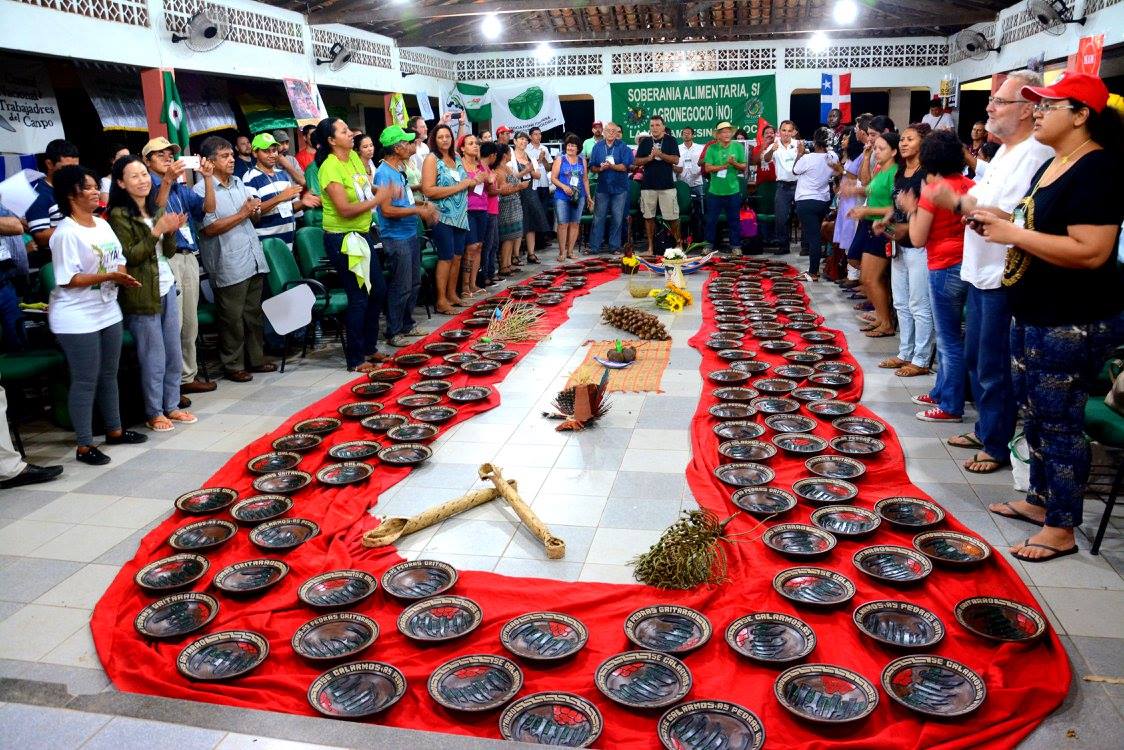Paul Nicholson, a dairy farmer from the Basque Country and among the founding members of La Via Campesina discusses the centrality of mistica in the movement. In this interview given to Resilience.org as part of a series “Agroecology in Motion”, he speaks about the founding principles of the movement and the unity in diversity that has come to define it.
Excerpts;
“La Via Campesina was formed in 1993. We began in a very intuitive way. We didn’t know where we were going or how we were going to do it, but we did know what we were. We were peasant farmers, and our struggle was changing agriculture policies and generating a new society, a new just society. La Via Campesina was a transformative movement, right from the beginning.
“We rejected the more vertical, traditional way of organization. We learned how to function in different ways. We developed more horizontal strategies, and women and youth began to play a more important role. We’re speaking about 1993, a very machistic society. At the time, there was no international peasant organization. It was the big farmers who spoke in name of everybody. And that was impossible in our view because the big farmers defend the agro industry. They defend a model of agriculture that is export-oriented. And so we had to fight for our space as small peasants. Our proposal was the “peasant way”. We developed the idea of food sovereignty, a political vision grounded in the right of people to define their food policies and have a say in who produces food, and food is produced. Food sovereignty became the main driving force of La Via Campesina. And eventually one of the main proposals for an alternative vision for society in general.”
…
“In every La Via Campesina gathering, we begin the day with what we call a mistica. It’s a spiritual, 10 minute “performance” relating to the commonalities of all the persons who are present. The mistica very often begins with music or poetry, and it focuses on a specific issue that we want to highlight. It might be seeds. The value of the seeds, the struggle against the TNCs who want to take the seeds from us. And then we end up handing out seeds. That is a typical performance. Or it’s about our relationship with land, which is our land, which has been taken over from us. Another theme that is very common is violence against women, the relationship between women and men, the issue of domestic or gender-based violence. Those are very common themes. The mistica doesn’t require any translation but communicates very strong emotions. Often the mistica makes you cry or it makes you understand very clearly. You need an open mind, and you need to understand our relationship with the land. It’s a Cosmovision, not an anthropocentric understanding. The planet is the center. In my opinion, the mistica is one of the principles uniting La Via Campesina. We are not an intellectual movement. We are an emotional movement. The mistica helps us work on our commonalities, not on our differences.“
To read the full interview, click here.
This post is also available in Français.

